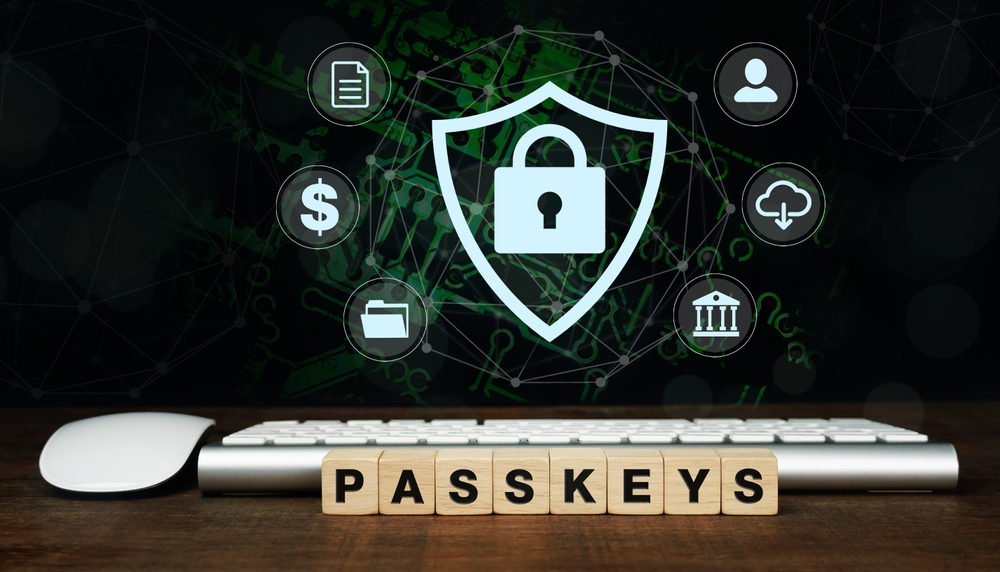How Passkeys Are Replacing Passwords: What You Need to Know
What Are Passkeys and Why Are They Replacing Passwords?
In the ever-evolving landscape of digital security, passkeys are emerging as a revolutionary replacement for traditional passwords. Passkeys are digital credentials that enable users to authenticate their identity without the need for memorizing complicated strings of characters. As cyber threats become increasingly sophisticated, the need for passkeys has become more apparent, offering a more secure and user-friendly alternative.
Passkeys work by employing cryptographic methods that rely on a pair of keys: a public key that is stored on the service’s server and a private key that remains on the user’s device. This system ensures that even if a hacker gains access to a service’s database, they cannot steal the user’s private key. The introduction of passkeys simplifies the user experience and significantly enhances security, minimizing the risk of data breaches.
Why are passkeys replacing passwords? This transformation is driven by the inherent vulnerabilities of passwords, such as susceptibility to phishing attacks, brute force attacks, and human error in password management. As digital platforms strive to improve user security, passkeys are proving to be a robust solution to these challenges.
Organizations are increasingly adopting passkeys as they provide a seamless and secure login process. With the rise of biometric authentication methods like fingerprint and facial recognition, passkeys integrate effortlessly, offering convenience without compromising security.

The Technology Behind Passkeys
The technology underpinning passkeys is based on public key cryptography, a method that has been used for securing digital communications for decades. When a user sets up a passkey, their device generates a pair of cryptographic keys. The public key is shared with the service provider, while the private key remains securely stored on the user’s device.
This method negates the need for users to create and remember complex passwords, instead allowing them to authenticate their identity with simple biometric inputs like a fingerprint or face scan. Passkeys transform the security landscape by eliminating the weak links commonly associated with password usage.
Passkeys are particularly effective in preventing phishing attacks, a common threat where attackers trick users into providing their passwords on fake websites. Since passkeys do not rely on a shared secret, they cannot be phished in the traditional sense. The use of passkeys thus represents a significant leap forward in thwarting such attacks.
The adoption of passkeys is also supported by major tech companies and industry standards, including the FIDO Alliance and W3C, which advocate for their widespread implementation. By leveraging existing hardware like smartphones and computers, passkeys are accessible and easy to deploy across various platforms and services.
Benefits of Using Passkeys Over Passwords
One of the most significant benefits of using passkeys over traditional passwords is the enhanced security they offer. Passkeys eliminate the risks associated with password reuse and weak password choices, which are common pitfalls for many users.
Passkeys also streamline the user experience by removing the need to remember multiple passwords. With a single passkey, users can securely access numerous accounts without the hassle of password management. This is particularly beneficial in enterprise environments where employees must access various services regularly.
Moreover, passkeys improve security hygiene by reducing the attack surface for cybercriminals. As passkeys are not transmitted over networks like passwords, the risk of interception is minimized. This added layer of security is crucial in safeguarding sensitive information from unauthorized access.
Additionally, the integration of biometric authentication with passkeys further enhances their security. Biometric traits are unique to individuals, making it nearly impossible for attackers to replicate or steal such data for unauthorized access. This level of protection is invaluable in an era where personal and corporate data is a highly prized commodity.
The Future of Passkeys in Digital Security
The future of passkeys in digital security looks promising as more companies and users adopt this innovative technology. As the digital landscape continues to evolve, the limitations of traditional passwords become increasingly apparent, making passkeys a preferred alternative.
Experts predict that passkeys will become the standard for authentication across various sectors, from finance to healthcare, where security is paramount. The rapid advancements in digital technology and increasing cyber threats necessitate a robust and adaptable solution like passkeys.
In conclusion, the transition from passwords to passkeys is not just a trend but a necessary evolution in digital security. By offering a combination of convenience, security, and efficiency, passkeys are set to redefine how we secure our online identities.
Ultimately, the widespread adoption of passkeys will depend on continued advancements in technology and an increased awareness of their benefits among users. As more systems integrate passkeys, we can anticipate a future where digital security is stronger and more reliable.
Conclusion
In summary, passkeys represent a significant advancement in digital security, offering enhanced protection and user convenience over traditional passwords. By leveraging public key cryptography and biometric authentication, passkeys address the vulnerabilities inherent in password-based systems. As the digital world continues to face growing security challenges, passkeys provide a robust solution that is poised to become the standard for secure authentication.